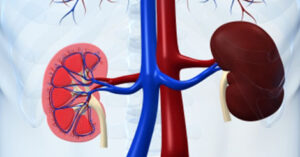Erectile dysfunction (ED) is a common medical condition that affects millions of men worldwide. It is defined as the inability to achieve or maintain an erection sufficient for sexual activity. ED can have a significant impact on a man’s quality of life and can affect his self-esteem, relationships, and overall well-being.
There are several underlying causes of ED, including physical, psychological, and lifestyle factors. Physical causes of ED include cardiovascular disease, diabetes, high blood pressure, hormonal imbalances, and neurological disorders. Certain medications, such as antidepressants and blood pressure medications, can also contribute to ED.
Psychological factors can also play a role in ED. Stress, anxiety, depression, and relationship problems can all contribute to ED. Performance anxiety, or the fear of not being able to perform sexually, can also lead to ED.
Lifestyle factors, such as smoking, excessive alcohol consumption, and drug use, can also contribute to ED. Obesity and a sedentary lifestyle can also increase the risk of ED.
Diagnosing ED typically involves a thorough medical history, physical examination, and blood tests. In some cases, specialized tests, such as a penile ultrasound or nocturnal penile tumescence (NPT) test, may be necessary to identify the underlying cause of ED.
Treatment for ED depends on the underlying cause. Lifestyle changes, such as quitting smoking, limiting alcohol consumption, and getting regular exercise, can improve overall health and reduce the risk of ED. Psychological counseling or therapy may be necessary to address underlying psychological factors contributing to ED.
Medications, such as phosphodiesterase type 5 (PDE5) inhibitors, are often prescribed to treat ED. These medications work by increasing blood flow to the penis, which can help achieve and maintain an erection. Injections, suppositories, or penile implants may also be recommended for severe cases of ED.
In conclusion, ED is a common medical condition that can have various underlying causes. Understanding the potential causes of ED and seeking timely medical care can improve the chances of successful treatment and restore sexual function. If you are experiencing symptoms of ED, it is important to speak with a healthcare provider to receive appropriate diagnosis and treatment.




